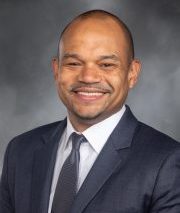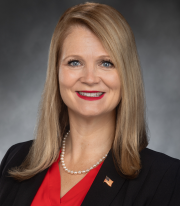Washington STEM informs critical policy decisions
Washington STEM informs critical policy decisions
We work with communities across the state to develop our state policy agenda to ensure state investments and policies drive the best outcomes for Washington’s students and economy.
With the support our regional partners, we use an Evaluation Framework to develop a policy agenda focused on creating opportunity for students of color, students from low-income backgrounds, students living in rural areas, and girls and young women.
Sign up for our Advocacy Coalition for all the latest interim updates ahead of the 2025 legislative session.
2024 Legislative Session Recap
- Session Highlights – PowerPoint and Video Presentation (March 22nd, 2024)
- Bill Tracker
LEGISLATIVE OUTCOMES:
Early Learning
Priority: Strengthen cross-agency coordination to expand access, use, and sustainability of early childhood education data.
Outcomes: Expanded eligibility for subsidized child care: investments in the true cost of quality care; support for the early learning workforce. Some notable legislation includes:
- Clarifying requirements for the Working Connections Child Care program (HB 2111).
- Supporting and expanding access to the Working Connections Child Care program (HB 2124).
- Investing in child care facility renovations (HB 2195).
- Funding education for infants and toddlers with disabilities program (HB 1916).
- Streamlining and enhancing program access for persons eligible for food assistance (HB 1945).
- Increasing the capacity to conduct timely fingerprint-based background checks for prospective childcare employees and other programs (SB 5774).
K-12 STEM
Priority: Improve system infrastructure and increase access to actionable data statewide to support school districts, students, and families in the transition from K-12 to postsecondary.
Outcomes: Increased investments that support the system infrastructure in the transition from K-12 to postsecondary as well as support for culturally sustaining learning, particularly Native education. Some notable legislation includes:
- Notifying high school students and their families about available dual credit programs and any available financial assistance (HB 1146).
- Reorganizing statutory requirements governing high school graduation to include more language around postsecondary readiness (HB 2110).
- Building a multilingual, multiliterate Washington through dual and tribal language education (HB 1228).
- Increasing prototypical school staffing to better meet student needs, including mental and behavioral health, English language learning, and special education (HB 5882).
- Expediting the licensure and employment of out-of-state teachers (SB 5180).
- Expanding and strengthening career and technical education core plus programs (HB 2236).
- Increasing data sharing between OSPI, WASAC, and institutions of higher education to improve equitable access to postsecondary education (SB 6053).
Career Pathways
Priority: Increase funding to the statewide education and employer network, Career Connect Washington, to build and sustain access to equitable Career Connected Learning Programs, increase postsecondary enrollment and boost credential attainment.
Outcomes: Increased access to financial aid and a $1 million investment in Career Connected Learning grant programs. Some notable legislation includes:
- Extending the terms of eligibility for financial aid programs (SB 5904).
- Permitting beneficiaries of public assistance programs to automatically qualify as income-eligible for the purpose of receiving the Washington college grant (HB 2214).
- Modifying placement and salary matching requirements for the state work-study program (HB 2025).
- Establishing a Native American apprentice assistance program (HB 2019).
- Establishing a pilot program eliminating college in the high school fees for private not-for-profit four-year institutions (HB 2441).
- Expanding and strengthening career and technical education core plus programs (HB 2236).
- Increasing data sharing between OSPI, WASAC, and institutions of higher education to improve equitable access to postsecondary education (SB 6053).
2023 Legislators of the Year
“These lawmakers distinguished themselves through bipartisan leadership and foresight,” said Washington STEM CEO, Lynne K. Varner. “Their work dramatically improves the landscape for early child care and education, as well as boosts the opportunities and career pathways available to Washington’s high school graduates.”
Rep. Chipalo Street (37th District) supported a funding proviso for the Department of Children, Youth and Families that will support production of new early learning data dashboards.
Rep. Jacquelin Maycumber (7th District) led a bipartisan effort to pass a bill for five regional pilot apprenticeships programs (HB 1013) that will develop collaborative partnerships between local schools, community or technical colleges, labor unions, registered apprenticeships programs and local industry groups. See her acceptance speech.
Sen. Lisa Wellman (41st District) sponsored legislation concerning High School and Beyond Planning (SB 5243) to develop an online platform so students across the state will have equitable access to after-high school planning resources regardless of their zip code. See her acceptance speech.
Washington STEM’s Legislator of the Year Award is presented annually to members of the State Legislature who have demonstrated extraordinary leadership in advancing legislation and policies that promote excellence, innovation, and equity in science, technology, engineering, and math education for all Washington students, especially those furthest from opportunity.
Read more about previous Legislators of the Year.
PAST LEGISLATIVE SESSIONS
Read more about our work in the 2023, 2022, and 2021 legislative sessions.



